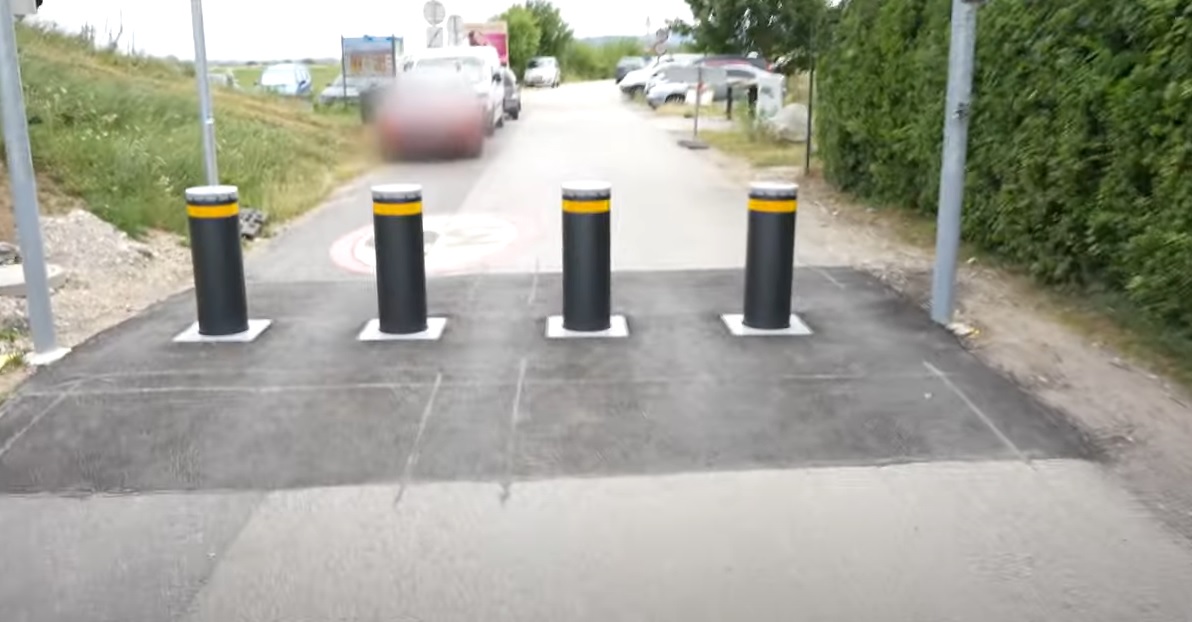Austrian village makes it impossible for Hungarian commuters to pass the border

Tension is rising at the Austrian–Hungarian border between Schattendorf and Ágfalva. After long months of road construction, Hungarians still cannot cross the border, making the life of commuters tough. The Mayor of the Austrian village did not keep his promise. Now, people have to travel 30 kilometres on a different route to get to work or meet their family members.
We reported HERE back in June that the border between Schattendorf (Somfalva) in northern Burgenland and Ágfalva had been closed for months due to unfinished construction. Naturally, this meant quite the challenge for Hungarian commuters who have to pass the border on a daily basis. The Mayor of Schattendorf, Thomas Hoffmann, was adamant about traffic restrictions; however, he promised that the road and the border would be open to “neighbourhood traffic” (Nachbarschaftsverkehr). For a long time, he did not share the exact rules, only the fact that there would be a toll. As it seems, he did not keep his promise.
False promises
Telex reports that the residents of Ágfalva face difficulties obtaining permission to cross the border. Even if they are willing to pay the municipality of Schattendorf, they still cannot get the permission. The Austrian border municipality took measures last year to restrict vehicular access between Ágfalva and Schattendorf (Somfalva) by installing concrete posts, requiring the fulfilment of specific criteria and the acquisition of a sticker for authorised use. Last year, the municipality reasoned with keeping traffic safe with these measures, but it seems they may just want to keep Hungarian commuters away.
Read also:
- Bus drivers’ strike continues in Hungary on Monday, with many bus services cancelled
- BREAKING: Budapest public transport monthly pass price falls from 1 March!
Making life hard for commuters
As it seems, reasons like working in a nearby Austrian village or having family members there are not valid enough to get permission. The situation means a daily challenge to many Hungarians, as the distance between the two villages would be only 2 kilometres, but by taking another route, it grew to 30 kilometres. According to a villager, it used to take her 10 minutes to cross the border, while now, after the unfair measures, it takes her 75 minutes. Only a few lucky ones had the chance to buy the sticker for authorised use of the road for EUR 160. Less fortunate ones only received a rejection. However, they were suggested to walk, ride a bike, or even a motorbike in order to cross the border freely.
Seeking legal action
Some villagers have addressed a letter to the Mayor of Schattendorf, but Thomas Hoffmann is keeping his silence on the matter. A law firm has taken the issue to court recently. Their main argument is that the arbitrary restrictions on transit violate fundamental EU rights. The case has now been ruled at first instance in the Eisenstadt court. While it does not favour the Hungarians, more legal options are still open. According to the law firm, it is quite clear that the sinking pillars closing the border are a barrier. In addition, the measures are not aimed at ensuring traffic safety but at keeping Hungarian commuters away.
Source:


I wish the lawyers well! they should sue and sue on a large scale. Its, for sure against Schengen and the Austrian government must interfere, Does HISTORY not teach these people anything. The mayor, it seems is a racist.
Not really, it’s more that the village was being used as a cut through from Sopron, leading to unsustainable volumes of traffic during the morning and evening commutes. But for the salary differences that lead to an army of Hungarian workers driving into Austria each working day, villages like Schattendorf would be sleepy places offering peace and quiet to its inhabitants. Such commuters need to stick to the main roads and should factor in the additional travelling time and cost when doing their sums, rather than wrecking the sanctuary of hapless villages who, by an accident of history, happen to sit alongside the old Iron Curtain. There are plenty of nearby border crossings to choose from, unfortunately for the inhabitants of the neighbouring Hungarian village it leads to a much longer drive but we should look at the bigger picture, i.e. tens of thousands of Hungarian commuters from a much broader area commuting daily to Burgenland and even Vienna seeking to take the most direct route which might involve driving through very small villages from the early hours of the morning.